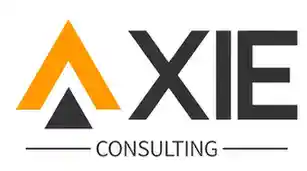
ChatGPT's Ghibli Feature Goes Viral—But at What Cost?
OpenAI's ChatGPT has shattered usage records after introducing a wildly popular image-generation tool that transforms user uploads into Studio Ghibli-inspired artwork. Social media platforms are flooded with dreamy, anime-style creations reminiscent of Spirited Away and Howl's Moving Castle, driving unprecedented traffic to the platform. But behind the magical visuals lie serious concerns about privacy, copyright, and data security that every user should understand before uploading their photos.
1. Your Uploaded Images Might Become Training Data
When you feed personal photos into ChatGPT's image generator, you're potentially giving OpenAI far more than just a temporary canvas. The company's privacy policy states that user content—including images—may be retained to improve future AI models unless you manually opt out. This means your family vacation photo could theoretically help train the next generation of AI art tools.
"Many users don't realize they're essentially donating their likeness to a dataset that could be used indefinitely," explains digital rights attorney Mara Whitman. "Unlike traditional photo filters that process images locally, AI systems often need to retain data to learn from it."
2. Ghibli-Style Art Enters a Copyright Gray Zone
While creating art "in the style of" Studio Ghibli might seem harmless, legal experts warn this viral trend walks a fine line. Japanese copyright law (like many jurisdictions) protects specific creative expressions but not general styles—yet courts haven't definitively ruled on whether AI-generated mimicry constitutes infringement.
Studio Ghibli co-founder Hayao Miyazaki has been famously critical of AI art, once calling it "an insult to life itself." Though no lawsuits have emerged yet, the studio could potentially challenge outputs that too closely replicate their signature aesthetic or characters.
3. Facial Data Could Be Vulnerable to Exploitation
Every portrait uploaded for Ghiblification contains biometric data that could be misused if leaked or improperly stored. Cybersecurity experts note that AI training datasets have been breached before—the 2023 LAION-5B incident exposed millions of private images scraped from the web.
"Once your face enters an AI system, you lose control over where it might surface next," warns data privacy consultant Raj Patel. "We're already seeing cases of AI-generated deepfakes using stolen likenesses from less secure platforms."
4. Terms of Service Grant Broad Licensing Rights
Buried in ChatGPT's terms lie concerning clauses about user-generated content. By default, OpenAI claims a "perpetual, worldwide license" to use anything you submit—including modified versions of your photos. While they state this is for service improvement, the broad language leaves room for interpretation.
Legal analyst Naomi Chen notes: "Most users skip the fine print, not realizing they may be granting rights to derivative works featuring their likeness in Ghibli-style or other AI-generated forms."
How to Use the Feature More Safely
If you still want to join the trend while minimizing risk, consider these precautions:
1. Use Non-Personal Images
Transform landscapes or generic stock photos instead of personal portraits to avoid biometric data exposure.
2. Adjust Your Privacy Settings
Disable "Improve the model" in ChatGPT's Data Controls to prevent your uploads from becoming training material.
3. Avoid Direct Character Replication
Steer clear of generating obvious Ghibli character knockoffs to reduce copyright concerns.
4. Read Platform Updates Carefully
OpenAI frequently adjusts its policies—stay informed about how your data may be used.
The Bigger Picture
This viral moment highlights growing tensions between AI innovation and personal rights. As ChatGPT's servers strain under record demand, users worldwide are confronting complex questions about digital ownership that current laws struggle to address. The Ghibli art phenomenon isn't just a cute trend—it's a case study in how quickly emerging technologies can outpace our ethical and legal frameworks.
While OpenAI hasn't indicated plans to restrict the feature, the company acknowledged temporary service disruptions due to overwhelming demand. For now, the magic of instant Ghibli-fied selfies continues—but informed users will think carefully about what they choose to upload.
